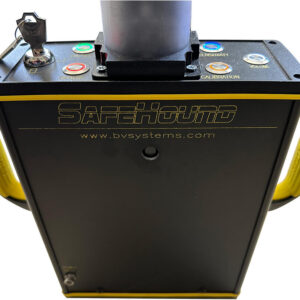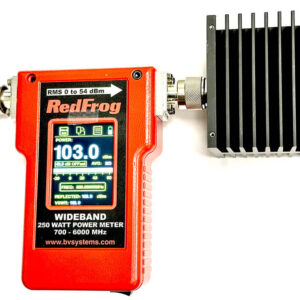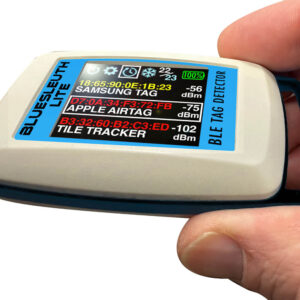Your cart is currently empty!
Watching the Detectives: GPS Tracker Detection
GPS trackers allow anyone to track the whereabouts of others regardless of which side of the law they reside. Fortunately, GPS tracker detectors allow those who not wish to be tracked, to easily discover these hidden trackers and remove them.
Before we can discuss GPS tracker detection, we have to step back and quickly discuss GPS trackers. GPS trackers are relatively inexpensive devices that allow law enforcement, repo men and private investigators to track the whereabouts of vehicles and their drivers. Of course since anyone can buy and use GPS trackers, anyone can be tracked using them including law enforcement officers, judges, jurors and jealous spouses. You can see how GPS trackers quickly become a double-edged sword working for both good and bad guys.
Trackers are simply GPS receivers just like the ones found in smartphones. They are small, self-contained and usually include their own power source. Some GPS trackers are passive and require manual retrieval to access the data, but most people prefer active trackers which allow realtime tracking without the need to retrieve the physical device itself. These active GPS trackers rely on the same cellular RF (radio frequency) our cell phones use to communicate. The GPS component of trackers is a one way communication from GPS satellites orbiting earth to the device, but in order to communicate back to the user and provide real time data for tracking and mapping, active GPS trackers include a cellular radio to transmits data over wireless cellular networks.
GPS tracker detection can be achieved by simply surveying the vehicle or bag or whatever you think is being tracked, but since most GPS trackers are battery operated, they rely on motion to activate their transmitting. If you suspect a car is being tracked, sometimes just stomping down on the bumper a few times is enough to temporarily activate the accelerometer within the tracker hidden somewhere on the vehicle, but if the GPS tracker is located somewhere towards the middle of the car body, more motion might be required.
Driving the vehicle up and down the street a few times is usually enough motion to activate the tracker. Some GPS trackers are constantly transmitting data to their owners while others only transmit intermittently. This is where sophisticated wireless tools come into play such as the Yorkie contraband cell phone detector. Originally designed to sniff out contraband phone use in prisons, Yorkie is increasingly being adopted for use by professional investigators, TSCM bug-sniffing pros and even government security agents looking to enforce a no cell phone policy in their facilities.
Professional cell phone detectors utilize sensitive receivers with adjustable attenuation and thresholds to alert users as soon as a wireless signal is detected. Many professional surveillance tools also include watermarks that reveal peak signals over time. Investigators using such tools can briefly drive around the vehicle in question until the hidden GPS tracker reveals itself to the sensitive receiver.
Most professional RF receivers can distinguish between nearby and distant signals but it’s still a good idea to drive around in an isolated area so as not to pick up too many random phone signals. And of course – make sure your own phone is powered completely off if you intend to bring it with you. Once you cruise around an isolated roadway for a few minutes, if there is an active GPS tracker somewhere in your vehicle, the GPS tracker detector will pick up on it. If the same frequency keeps popping up on your receiver as you continue to drive, you have found it.
Now you need to actually locate it so that you can remove it. Does the signal seem stronger towards the front, middle or rear of the car? If you searched all of the obvious places such as the trunk, steering column, glove box and under wheel wells and still come up with nothing, you can rely on the GPS tracker detector to save you hours of further searching. Use a mirror or put the vehicle up on a lift to search the areas from which the strongest signals emanate. Most GPS trackers are innocuous looking but magnetically attach somewhere to the car’s steel frame so take your time and keep an eye out for areas that look newly cleaned or tampered with.
We all have the right to not be tracked so detecting and removing GPS trackers is an important part of our privacy and constitutional rights here in the U.S. Learn more about cell phone, Wi-Fi, Bluetooth and GPS tracker detectors on our website.

Scott Schober
CEO | Author | Speaker at Berkeley Varitronics Systems
Scott Schober presents at cybersecurity and wireless security conferences for banking, insurance, transportation, construction, telecommunications and law enforcement industries. He has overseen the development of dozens of wireless test, security, safety and cybersecurity products used to enforce a “no cell phone policy” in correctional, law enforcement, and secured government facilities. Scott regularly appears on network news programs including Fox, Bloomberg, Good Morning America, CNN, MSNBC, NPR and many more. He is the author of 'Senior Cyber', 'Cybersecurity is Everybody's Business' and 'Hacked Again', the “original hacker’s dictionary for small business owners” - Forbes Magazine.
Our Newsletter
Lorem ipsum dolor sit amet, consectetur adipiscing elit. Aliquam mattis ligula vitae leo scelerisque, sit amet feugiat ex venenatis.
"*" indicates required fields
Latest Posts
Our Best Sellers
How can we help?
Lorem ipsum dolor sit amet, consectetur adipiscing elit. Nunc dictum aliquet justo sit amet consectetur. In tempor lobortis ante vitae ornare. Praesent feugiat magna at tempor consequat. Aenean in iaculis libero, aliquam imperdiet mi.









Leave a Reply